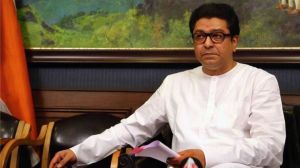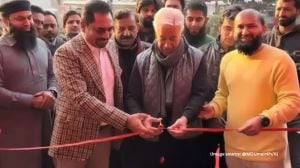The Big Barack Question
Flight or fight? A new book on what might be the ultimate test for Obama.
Flight or fight? A new book on what might be the ultimate test for Obama.
On this day nine years ago,Jalalabad fell to the Afghan forces,primarily the Northern Alliance,assisted by the US-led invasion army,capping an abundantly successful campaign against the Taliban: from the fall of Bamiyan on November 11,through Kabul on the 13th. And no matter on which side of the debate you stood,whether war should have been an option or not,the consensus was that Afghanistan could look ahead to a more tranquil,considerably more modern future. Now,as the clock winds down to US President Barack Obamas West Point time frame for beginning withdrawal of US troops from Afghanistan and optimism appears to be an indulgence,Gideon Rose asks the timely question,how will this war end? If the conduct of war is a clunky subject for weekend reading,think about its endgame as the pursuit of peace.
In How Wars End: A History of American Intervention from World War I to Afghanistan,Rose,who has recently been appointed editor of Foreign Affairs,holds that American leaders have rarely if ever closed out military conflicts smoothly and effectively. That perhaps is what will define the Obama presidency: how he closes out,or begins to draw down,a war that was widened so suddenly,a war whose chequered progress,in fact,recommended him as the man who could calm the world better than his Republican challenger.
Rose argues that to study Americas wars is to undertake a tour of American history,and in his somewhat bleak telling that is a history of learning the wrong lessons for the next war. He suggests the liberal dilemma is to move beyond an interrogation of the case for Bushs wars to the manner in which peace or an approximation of it may be won by Obama. To Obama,Rose throws down the Clausewitzian challenge that found out his predecessors: The main lines along which military events progress are political lines that continue throughout the war into the subsequent peace To bring a war,or one of its campaigns,to a successful close requires a thorough grasp of national policy. On that level,strategy and policy coalesce: the commander-in-chief is simultaneously a statesman.
The jury is still out on when exactly the US began to get Afghanistan wrong; one view is that it could have been as early as November 2001,when within days of the capture of Kabul,Washington began to investigate the prospects of an invasion of Iraq. Rose does,however,identify the mindset that led the war awry. In late 2005,with the Iraq campaign proving to be messy,Condoleezza Rice,then National Security Advisor,told the US Senate Foreign Relations Committee: Our strategy is to clear,hold and build: clear areas from insurgent control,hold them securely,and build durable,national Iraqi institutions.
That testimony enraged Defence Secretary Donald Rumsfeld,who not long after said: Anyone who takes those three words and thinks the United States should clear and the United States should hold and the United States should build doesnt understand the situation. It is the Iraqis country. Theyve got 28 million people there. They are clearing. They are holding. They are building The idea that we could do that is so far from reality. No one has any intention to do that. Rumsfeld was disabused of his certitudes with the subsequent surge,essentially demolishing the argument that the 21st centurys big wars could be executed with a light footprint but the damage had been done.
And while Afghanistan preceded Iraq,its the takeaway from Iraq of a late infusion of US military manpower that is now the big story in Afghanistan. Rose is not willing to call which way Obamas Afghan endgame will go but his clues for how to track it are interesting. The West Point declaration,he says,amounted to Obama splitting the difference,giving his commanders the extra troops they sought for deeper counter-insurgency operations while hinting at a withdrawal of troops from the summer of 2011. Rose writes: Since there is little reason to believe that the situation in Afghanistan will improve dramatically and sustainably any time soon,the contradictions inherent in the West Point speech will likely come to a head as the withdrawal date approaches Like the Nixon administration in Vietnam or the George W. Bush administration in Iraq,the Obama administration will eventually have to decide which goal in Afghanistan it cares about more extricating the United States from a seemingly endless counterinsurgency or continuing to keep enemy forces at bay. Neither option is attractive.
Postscript: In another book just out,Monsoon,Robert Kaplan argues that just as the map of Europe was crucial to understanding great power relations in the 20th century,in this one it will be a map of the Greater Indian Ocean,stretching eastward from the Horn of Africa past the Arabian Peninsula,the Iranian Plateau and the Indian Subcontinent,all the way to the Indonesian archipelago and beyond,and that the stability of Afghanistan will be crucial to securing the future prosperity of the whole of southern Eurasia.
mini.kapoorexpressindia.com
- 01
- 02
- 03
- 04
- 05































